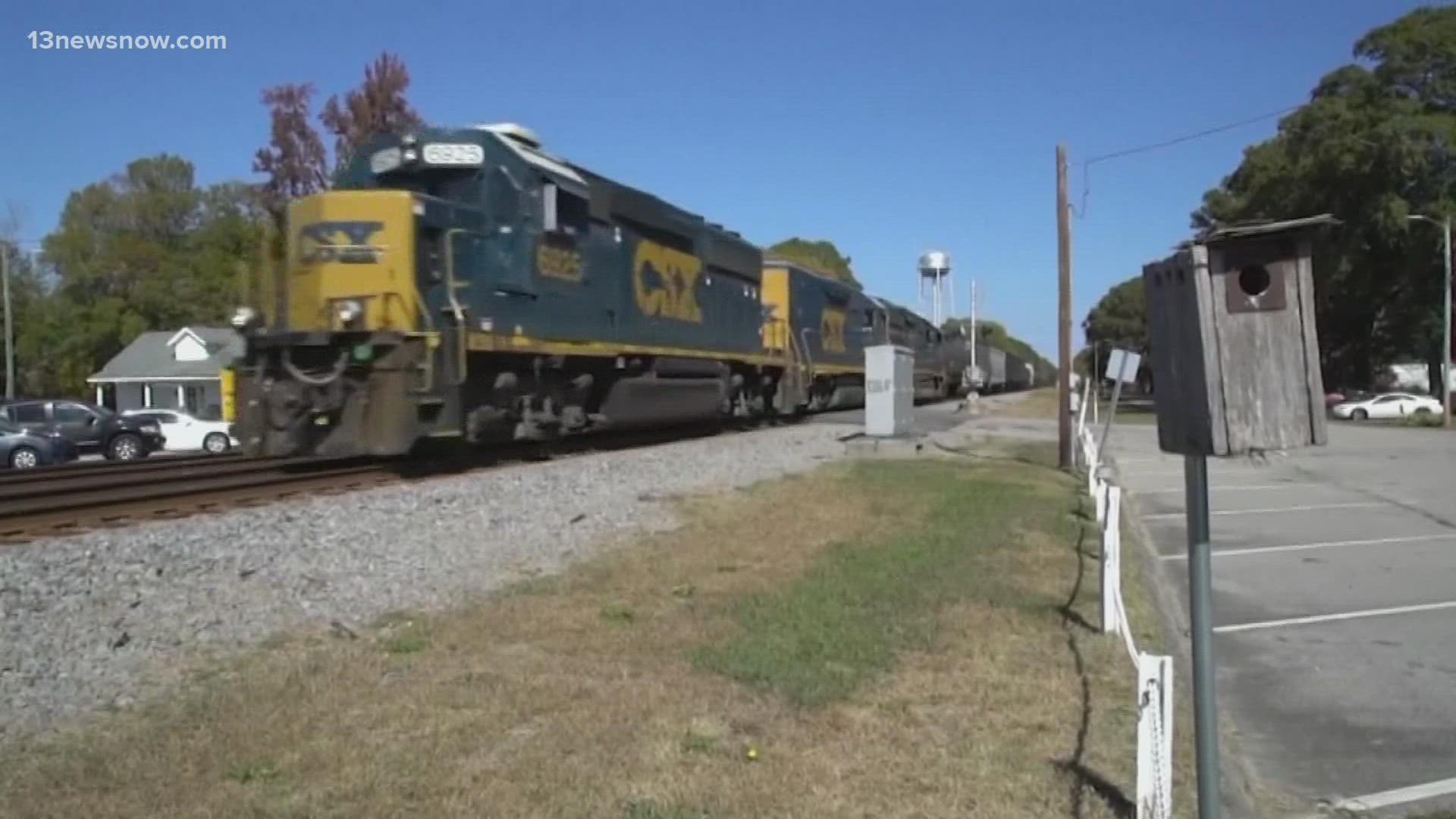WASHINGTON — The Senate took action late Thursday, voting 80 to 15, to avert a national rail strike.
In a statement, Virginia Sens. Mark Warner and Tim Kaine said:
“We’re relieved that we averted a rail shutdown, which would have had disastrous consequences on our economy right before the holidays. But we’re disappointed that our colleagues rejected a separate bill we supported to provide sick days for our rail workers. The workers who keep our trains and economy running are invaluable. They need and deserve paid sick leave. Especially after COVID, the notion of seven days of paid sick leave for full-time workers is basic common sense. It keeps coworkers and customers healthier when sick employees are able to take time off to attend to their health needs. And this adds to the productivity of workplaces. We will continue to look for ways to protect workers.”
America's railroads haul about 40% of the nation's freight each year, and it's been estimated that a rail strike would cost the U.S. economy $2 billion a day, paralyzing the supply chain and passenger rail service heading into the holidays.
Old Dominion University Economics Professor Bob McNab said before the Senate vote that a strike would be "catastrophic" for the U.S. economy and it would harm Hampton Roads, where the local economy is acutely reliant upon port activity.
"If we think of Hampton Roads, we rest on defense, the port, and travel and tourism," he said. "And while typically we see lots of trucks carrying containers, roughly a third of traffic out of the port if not more is on rail and that's imports and exports."
The House voted Wednesday 290 to 137 to pass the legislation that, under a 1926 law, would force a tentative rail labor agreement and thwart a national strike.
The measure approves new contracts providing railroad workers with 24% pay increases over five years, and it grants workers one additional personal day off.
In a White House statement last Thursday after the Senate vote, President Joe Biden made the following statement:
"On Tuesday, I met with Congressional leaders from both parties and told them that Congress needed to move quickly to avert a rail shutdown and economic catastrophe for our nation. Now, I want to thank Congressional leadership who supported the bill and the overwhelming majority of Senators and Representatives in both parties who voted to avert a rail shutdown. Congress’ decisive action ensures that we will avoid the impending, devastating economic consequences for workers, families, and communities across the country. Communities will maintain access to clean drinking water. Farmers and ranchers will continue to be able to bring food to market and feed their livestock. And hundreds of thousands of Americans in a number of industries will keep their jobs. I will sign the bill into law as soon as Congress sends it to my desk.
"Working together, we have spared this country a Christmas catastrophe in our grocery stores, in our workplaces, and in our communities.
" know that many in Congress shared my reluctance to override the union ratification procedures. But in this case, the consequences of a shutdown were just too great for working families all across the country. And, the agreement will raise workers’ wages by 24%, increase health care benefits, and preserve two-person crews.
"I have long been a supporter of paid sick leave for workers in all industries – not just the rail industry – and my fight for that critical benefit continues.
"This week’s bipartisan action pulls our economy back from the brink of a devastating shutdown that would have hurt millions of families and union workers in countless industries. Our economy is growing and inflation is moderating, and this rail agreement will continue our progress to build an economy from the bottom up and middle out."

